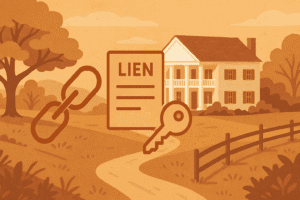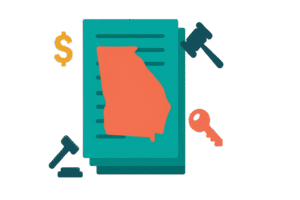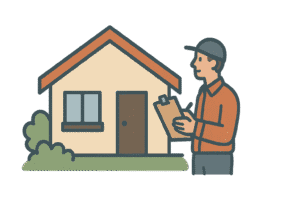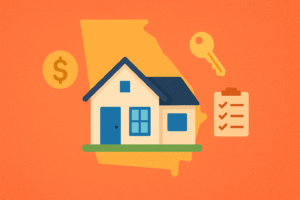7 Essential Tips for Negotiating Your Home Price
Home purchase negotiation tips can save you thousands in real estate transactions. After twenty-two years of sitting across the table from buyers and sellers, I’ve…

Home purchase negotiation tips can save you thousands in real estate transactions. After twenty-two years of sitting across the table from buyers and sellers, I’ve seen pretty much everything in Georgia real estate. The tears of joy when first-time buyers get their dream home for $15,000 under the asking price. The frustration when a home sale falls apart over a water heater repair. The triumph is when a savvy negotiator saves a lot of money on closing costs and the purchase price.
Here’s what I’ve learned: In today’s market, where mortgage rates are between 6-7% and the median house price is around $368,500, real estate negotiation isn’t just helpful—it’s essential. Every dollar you save stays in your pocket, and those dollars add up faster than you think. Whether you’re a first-time buyer or you’ve been through this before, these seven tips will help you navigate the often-confusing world of home price negotiations and get the best deal possible.

1. Know Your Position: Buyer’s vs. Seller’s Market
| Aspect | Buyer’s Market | Seller’s Market |
|---|---|---|
| Inventory | High | Low |
| Competition | Low | High |
| Negotiation Power | Buyer strong | Seller strong |
| Price Trends | Stable/declining | Rising |
| Typical Outcomes | Discounts, concessions | Full price or above |
A potential buyer is terrified about buying a new home. They’ve found a cute ranch house listed at $285,000 but have no clue where to start with negotiations. The first thing I told that person, and what I’m telling you, is that understanding your market position is like knowing what cards you’re holding in poker. You can’t play smart if you don’t know your hand.
Right now, we’re seeing pockets of both a buyer’s market and a seller’s market across Georgia. In a seller’s market, you might compete against multiple offers, which means your negotiation strategies need to be creative. But in a buyer’s market, you can flex those negotiation muscles a bit more. I remember one closing where a buyer in a slow local market got the seller to knock $22,000 off the asking price, pay all closing costs, and throw in a home warranty. The seller had been on the market for a long time and was getting desperate.
The comparative market analysis your real estate agent provides isn’t just pretty charts, it’s your roadmap to understanding the market value of your home.
2. Get Pre-Approved: Your Golden Ticket to Negotiation
I’ve seen too many dreams crushed by this mistake. Never, ever start house hunting without getting pre-approved by a mortgage lender first. Your pre-approval letter is your golden ticket to serious real estate transactions. Sellers won’t even look at offers without one.
Here’s an insider tip: get pre-approved for slightly more than you actually want to spend. If you’re comfortable with monthly payments of $2,200, get approved for $2,400. This gives you wiggle room and shows sellers you’re financially solid. With mortgage rates where they are, this is a crucial factor. That maximum amount your lender approves might look scary, but remember, just because you can borrow a higher price doesn’t mean you should.
3. Craft a Winning Offer: The Art of the Initial Bid
This is where the rubber meets the road. It’s part art, part science, and part gut feeling developed over years of watching deals succeed and fail.
Research: Your Offer’s Secret Weapon
Your real estate agent should provide you with comparable sales data, but don’t just glance at it. Study it like you’re cramming for finals. Look for homes sold within the last six months in the same neighborhood. Pay attention to how long those properties were on the market. A house that sold for the full list price after three days is different from one that sold after ninety days. The first suggests a hot market where you might need to make a higher offer; the second suggests you have more room to make a lower offer.
The old rule of thumb says to offer 5-10% below the asking price, and in many situations, this works perfectly. But rules are made to be broken. In hot markets, that rule might get your initial offer tossed in the trash. The key is reading the situation correctly. Your first offer sets the tone for everything that follows.
4. Leverage the Inspection: Negotiating Your Second Chance
The home inspection is where I’ve seen more deals get saved and more deals get killed than any other part of the process. The inspection report is your second bite at the negotiation apple. When it comes back, you have options. Potential issues like HVAC systems, plumbing, or electrical concerns are not just inconveniences—they’re negotiation gold.
The Three Main Options Post-Inspection
When inspection results surface, you have three paths:
| Option | Description | Benefit |
|---|---|---|
| Request Repairs | Ask seller to fix issues before closing | Issues resolved by seller |
| Credits at Closing | Request credits to handle repairs yourself | Reduces closing costs |
| Lower the Price | Negotiate lower purchase price | Accounts for repair costs |
Be reasonable with your requests. I’ve seen home buyers torpedo perfectly good deals by demanding the seller fix a minor cosmetic issue. Get actual estimates for the cost of repairs and focus on significant items.
5. Think Beyond Price: Negotiating Closing Costs and More
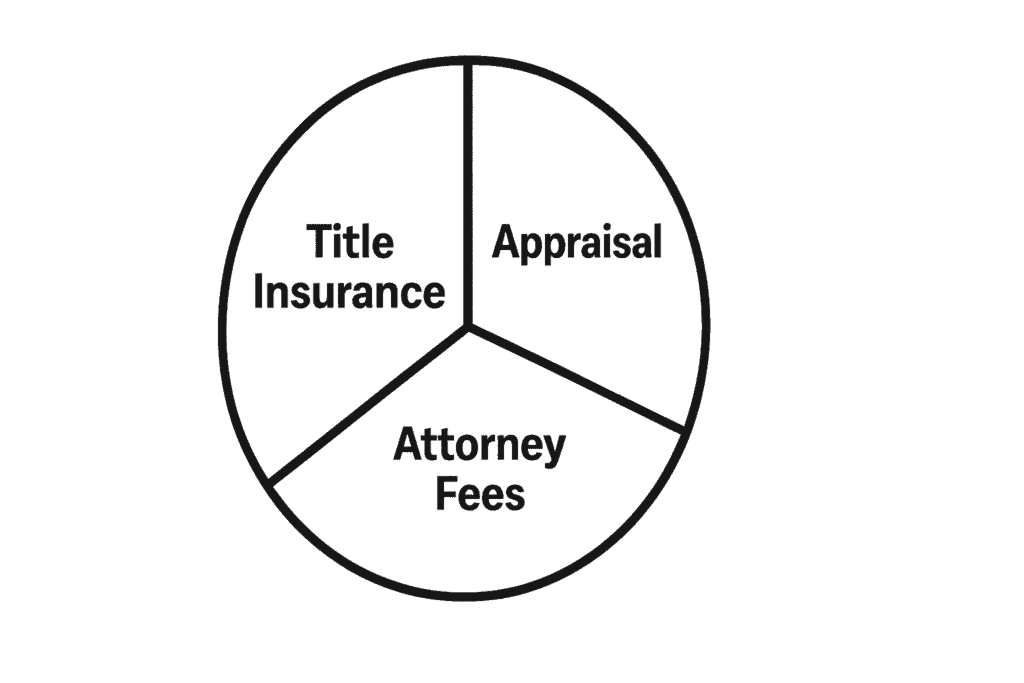
Closing costs are like that friend who always shows up uninvited to dinner. You know they’re coming, but they still catch you off guard with how much they eat.
In Georgia, closing costs typically run 2-5% of the purchase price. On a $300,000 home purchase, that’s thousands of dollars. But many of these costs are negotiable. Sellers can pay for things like your title insurance, appraisal fees, and attorney fees. It’s not uncommon, especially in a buyer’s market.
Don’t forget about personal property negotiations either. That gorgeous chandelier? The custom window treatments? These items can add thousands of dollars in value if you negotiate them into the deal. A good home warranty can save you a lot of money if major appliances fail in your first year.
6. Master the Art of Competitive Offers
A competitive market is where negotiation gets really interesting. It’s like playing chess while riding a roller coaster.
The Escalation Clause Strategy
An escalation clause is your secret weapon in multiple offer situations. You’re essentially telling the seller, “I’ll beat any other offer by X amount, up to my maximum price.” The key is setting your highest price limit realistically.
The Power of a Personal Letter
Sometimes the highest offer doesn’t win. I’ve seen sellers accept an offer thousands of dollars below the highest bid because they connected with the buyer’s personal letter. Don’t get too personal, but share why you love the new home and how you’d care for it. This can be a best negotiation tactic.
7. Cultivate the Right Mindset: When to Collaborate, When to Walk Away
After all these years, I’ve noticed that the most successful negotiators share a certain mindset. The best negotiations feel more like collaborations than competitions. When both sides feel they’re getting a fair deal, the whole home purchase process goes smoother.
Developing a win-win mindset is the best way to build rapport and ensure a smoother negotiation process. Avoiding emotional decision-making is also key; negotiations need to be based on facts and market realities.
The hardest lesson to learn is knowing when to walk away. Sometimes, protecting your best interest means moving on to a different property. Having backup properties keeps you from getting tunnel vision. You’re in the best position when you have options.
Conclusion
After twenty-two years of watching buyers navigate these real estate transactions, I’ve learned that success comes down to preparation, patience, and working with real estate professionals. These key strategies—understanding your market position, making a smart initial offer, leveraging a home inspection, negotiating beyond the purchase price, competing effectively, creating win-win solutions, and maintaining the right mindset—form the foundation of successful home price negotiations.
Every situation is unique, and what works in one negotiation might not work in another. But armed with these strategies, you’ll be in much better shape to get a better deal on your new house. Don’t be afraid to lean on experienced real estate professionals. A good real estate agent can save you far more than they cost.
Start your home buying journey with confidence, but also with realistic expectations. The perfect deal might not exist, but with smart negotiations, you can definitely find a great deal that works for your situation and your budget.
